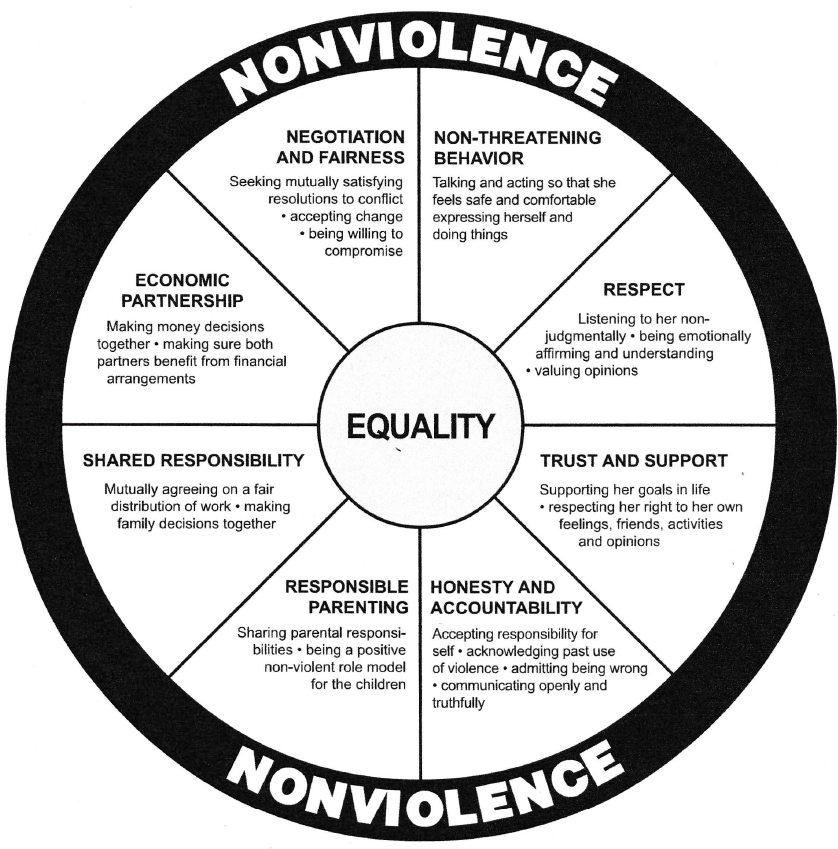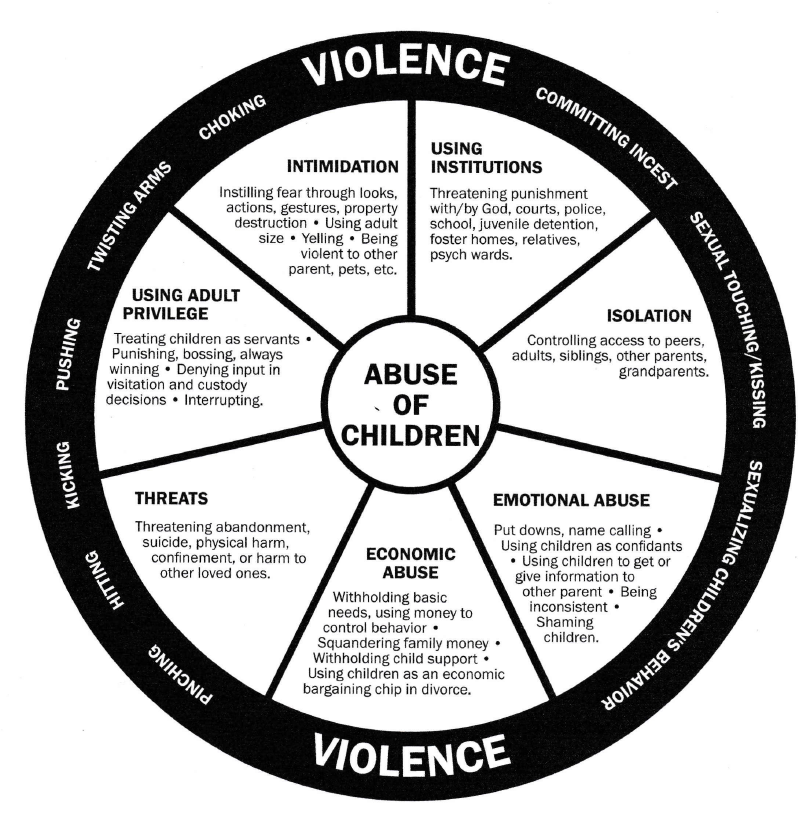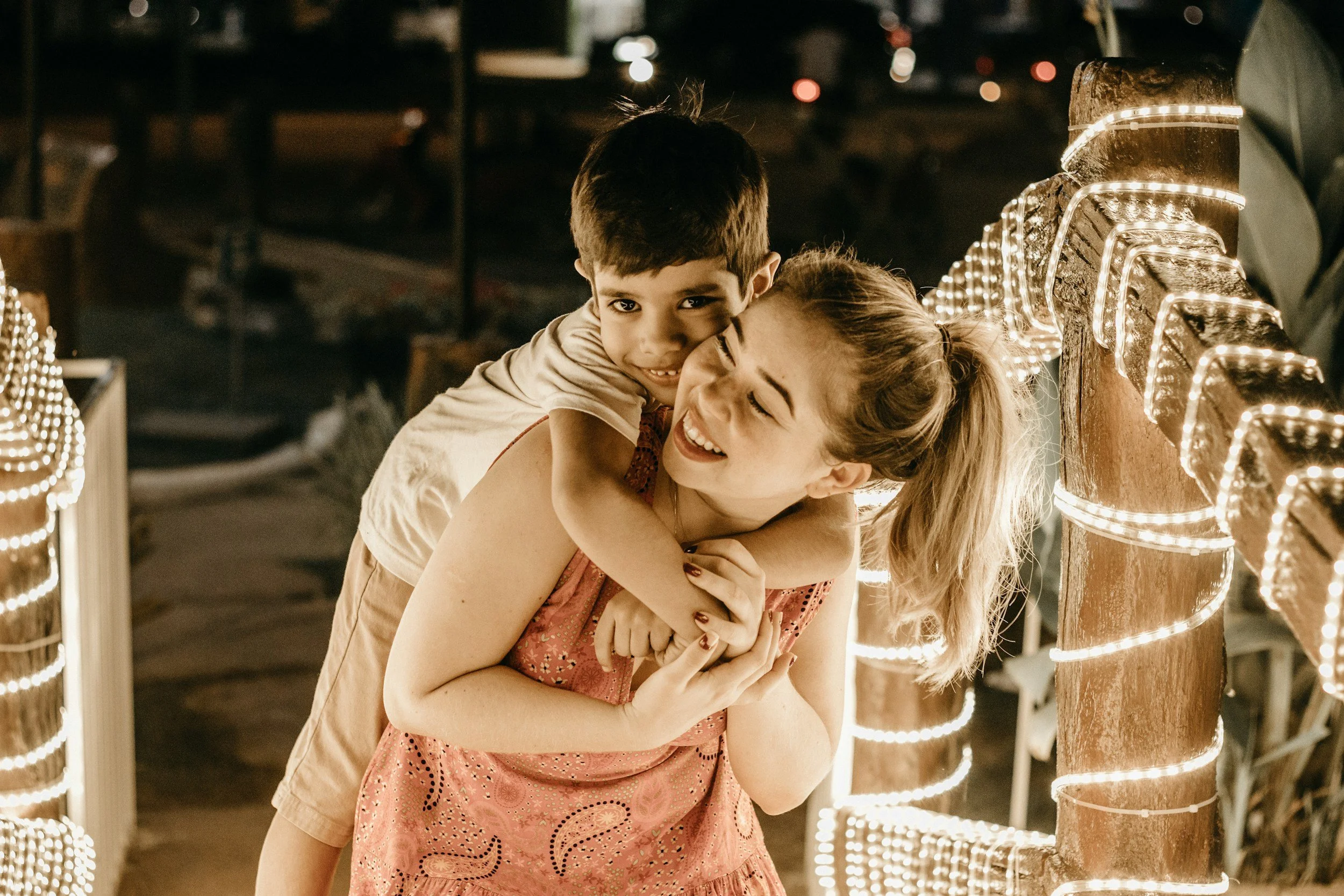Should I stay in the abusive relationship with my partner for my kids?
Many of my clients ask me, “Should I stay in an abusive relationship with my partner for the sake of my children?”
I usually explain that in relationships characterized by power and control, survivors often develop negative coping strategies, such as:
Normalization: viewing violence as “normal” or acceptable.
Generalization: believing that violence is common and therefore unavoidable.
Minimization: downplaying or denying the severity of the abuse.
This is called the “power and control wheel”. The controller uses these strategies to manipulate the partner.
On the other hand, this is called the “equality wheel” shows happy couple.
When survivors minimize their experiences, they may develop what has been described as Battered Woman Syndrome.
What is Battered Woman Syndrome?
Originally, Battered Woman Syndrome suggested that victims of abuse were not mentally sound enough to make rational decisions, such as leaving their partner before the violence escalated (Walker, 1977). However, we now understand that victims do not remain in abusive relationships because of a mental disorder.
If survivors are unable to leave, it is often due to real and significant barriers, such as:
Fear of retaliation by the abuser
Lack of financial resources or employment
Absence of a safe support system or advocate
Fear of losing custody of their children
Isolation from shelters, family, or friends
Disability, undocumented status, or other dependence on the abuser
The abuser’s position in law enforcement or community authority
Promises of change or hope the abuse will end
Religious or cultural beliefs discouraging separation or divorce
Family or community pressure to remain in the relationship
Shame, stigma, or embarrassment
Trauma bonding with the abuser
Battered Woman Syndrome has also been discussed as a subcategory of post-traumatic stress disorder (PTSD) (Walker, 2017; National Resource Center on Domestic Violence, 2016).
What is the child abuse? There are some parents abuse children, too. This wheel shows the manipulation and abuse toward children.
The Impact on Children
As a child and adolescent therapist, I want to emphasize the serious impact on children when they are exposed to violence in the home.
When children witness violence, it can harm both their present and future wellbeing. This is known as Adverse Childhood Experiences (ACEs) (Felitti et al., 1998; World Health Organization, 2020).
Common ACEs include:
Emotional abuse
Physical abuse
Sexual abuse
Emotional neglect
Physical neglect
Witnessing the mother being treated violently
Household substance abuse
Homelessness
Household mental illness
Parental separation or divorce
Incarcerated family member
Bullying
Witnessing violence in the community or at home
Witnessing a sibling being abused
Racism, sexism, or discrimination
Natural disasters or war
Impact of ACEs
Much like disruptions in attachment, exposure to ACEs can significantly affect both physical and mental health across the lifespan (Webster et al., 2022). ACEs can also prevent the development of healthy attachment relationships in children.
Some long-term impacts of ACEs include:
Increased risk of chronic physical health conditions in adulthood (e.g., heart disease, cancer) (Felitti et al., 1998).
Higher likelihood of mental health difficulties, such as anxiety, depression, and PTSD. Research suggests that one in three diagnosed mental health conditions in adulthood is directly related to ACEs (Webster et al., 2022).
The longer the exposure to ACEs and the more ACEs experienced, the greater the negative effects on development and health (Felitti et al., 1998; Webster et al., 2022).
Adverse Childhood Experiences (ACEs) can disrupt healthy brain development, altering how children process stress, regulate emotions, and build relationships, which may increase the risk of mental health challenges and difficulties in learning and behavior later in life (Felitti et al., 1998; Shonkoff et al., 2012).
Other difficulties linked to ACEs include:
Challenges in recognizing and regulating emotions
Difficulty building and maintaining healthy friendships and relationships
Struggles with behavior management in school settings
Unsafe coping strategies, including self-harm or aggression toward others
Seeking Support
If you are worried about family harm or child abuse, the most effective step is to talk with a professional who specializes in family violence or child protection. Support is available, and reaching out can make a difference for both you and your children.
Hana Counselling provides a range of services, including counselling for adults, children, and adolescents(Including EMDR, TF-CBT), as well as dance movement therapy, art therapy, and social work support.
References
Felitti, V. J., Anda, R. F., Nordenberg, D., Williamson, D. F., Spitz, A. M., Edwards, V., Koss, M. P., & Marks, J. S. (1998). Relationship of childhood abuse and household dysfunction to many of the leading causes of death in adults: The Adverse Childhood Experiences (ACE) Study. American Journal of Preventive Medicine, 14(4), 245–258. https://doi.org/10.1016/S0749-3797(98)00017-8
National Resource Center on Domestic Violence. (2016). Battered woman syndrome: A critical review. Retrieved from https://vawnet.org
Shonkoff, J. P., Garner, A. S., Committee on Psychosocial Aspects of Child and Family Health, Committee on Early Childhood, Adoption, and Dependent Care, & Section on Developmental and Behavioral Pediatrics. (2012). The lifelong effects of early childhood adversity and toxic stress. Pediatrics, 129(1), e232–e246. https://doi.org/10.1542/peds.2011-2663
Walker, L. E. (1977). The battered woman. New York, NY: Harper & Row.
Walker, L. E. (2017). Battered woman syndrome. Psychiatric Times. Retrieved from https://www.psychiatrictimes.com/view/battered-woman-syndrome
Webster, R., Bowden, M., Tzoumakis, S., & Laurens, K. R. (2022). Adverse childhood experiences and associated outcomes in adulthood: A systematic review and meta-analysis. International Journal of Environmental Research and Public Health, 19(4), 2220. https://doi.org/10.3390/ijerph19042220
World Health Organization. (2020). Adverse childhood experiences international questionnaire (ACE-IQ). World Health Organization. Retrieved from https://www.who.int/publications/m/item/adverse-childhood-experiences-international-questionnaire-(ace-iq)








